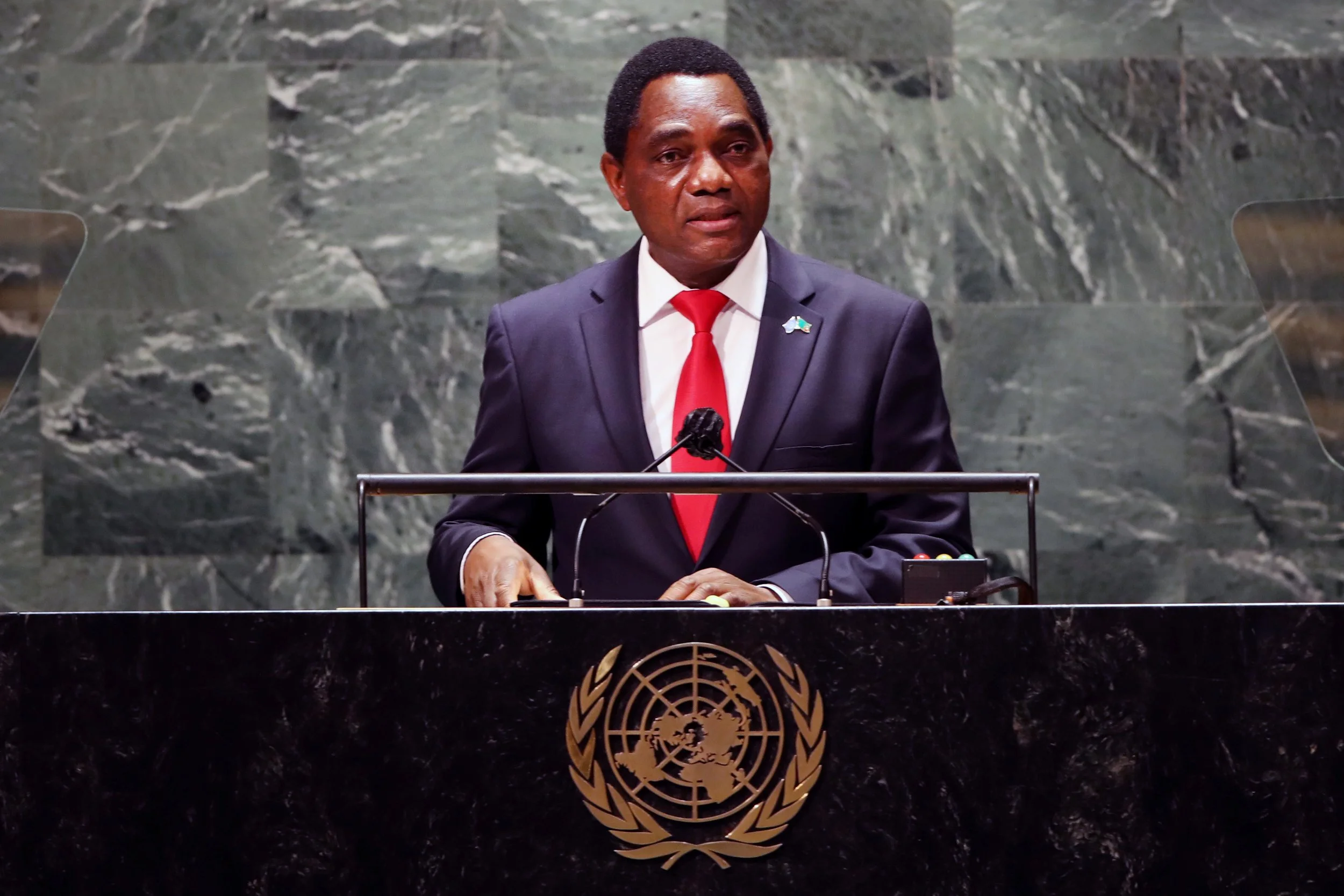The international community is getting to know Zambia’s new President Hakainde Hichilema well these days. From Cape Town to Brussels to the Commonwealth Heads of Government Meeting in Kigali – the first appearance by a Zambian head of state since 2011 – President Hichilema, better known as HH, is a man on the move. This represents a huge change from Hichilema’s predecessor, Edgar Lungu, who held a more skeptical view of international cooperation. For example, Lungu kicked out the IMF in 2017 and declared the U.S. ambassador persona non grata in 2019.
Under Hichilema, the environment has drastically changed. For Zambians especially, this represents more than just a mere changing of the guard – it is a welcome breath of fresh air.
Already the Hichilema government’s agenda of job creation and economic empowerment is producing results. Next month, 30,000 new teachers will stand in front of chalkboards across the country, providing a vital boost to the nation’s education system while keeping thousands of qualified teachers employed. Meanwhile, the recruitment of some 11,200 healthcare workers continues apace.
Recognizing that the true engine of job creation is the private sector, Hichilema’s government has additionally prioritized attracting investment, as well as spearheading government initiatives to help businesses prosper. The US $1.36 billion investment by First Quantum Minerals, which Hichilema announced in Cape Town, is, according to a recent report, predicted to create around 18,000 jobs in Zambia’s mining and associated industries.
Unlike his predecessor, Hichilema is not concerned with or interested in quick wins but is instead setting sights on the future by investing in our nation’s youth. In the 2021 election, young people made up 56% of all registered voters. Hichilema is obviously keen to pay back this trust that young people have placed in him, consequently delivering on a campaign promise to provide free education to all primary and secondary school pupils. To date, the government has also funded an additional 2,000 university bursaries, using funding that has been reclaimed through anti-corruption efforts.
Zambians are experiencing other positive changes, too. Almost every day, news breaks about another high-profile anti-corruption case, with many public officials being taken to court for embezzlement under the previous kleptocratic regime. This is of course slow work and there is a sense of frustration that cases are not being dealt with quickly enough. To help speed up future anti-corruption efforts, the government has signed a statutory instrument for the creation of an Economic and Financial Crimes Court that will streamline future prosecutions.
Zambians do not underestimate just how difficult some of these efforts have been to push through. Those on the outside looking in should appreciate this fact.
On the important issues of justice and human rights, international readers may already be aware that Hichilema’s government is tabling legislation to abolish the death penalty – a decision that has been widely praised by human rights groups and ordinary Zambians alike. Less reported, however, is the proposed review of the Public Order Act (POA), a colonial-era piece of legislation that was used under previous governments to disrupt opposition party meetings and muzzle political dissent. As the leader of Zambia’s largest opposition party for over 15 years, Hichilema is familiar with the powers of the POA and has instructed government to amend it, making it less liable to abuse in the future. In doing so, the government is helping to safeguard the democratic rights and freedoms of ordinary Zambians, those who had previously suffered a dramatic curtailing of civil liberties.
No government is without fault, of course, and there have been challenges since Hichilema took office. The recent shortage of drugs and medical supplies in some of our hospitals sticks out as a particular shortcoming. Understandably, Zambians are keen to see the government pick up the pace when it comes to service delivery. And there are still thousands of qualified Zambians without jobs, businesses continue to struggle with rising costs, and many citizens remain desperate to make ends meet. Nevertheless, let’s not lose sight of the bigger and the increasingly clear picture.
A mere ten months into Hichilema’s presidency, Zambians can assuredly point to a specific way or an example in which their lives have improved. From the debt crisis to education and holding corrupt officials accountable, Hichilema’s government is making serious headway on multiple fronts while delivering on the key priorities of finding jobs and feeding families.
Zambians know this to be true. The rest of the world should take note as well.
Choolwe Chibomba is a Zambian political activist and commentator who recently worked on the United Party for National Development’s campaign during the 2021 general elections
DISCLAIMER: The views expressed in this publication do not necessarily reflect the opinions of Vanguard Africa, the Vanguard Africa Foundation, or its staff.

